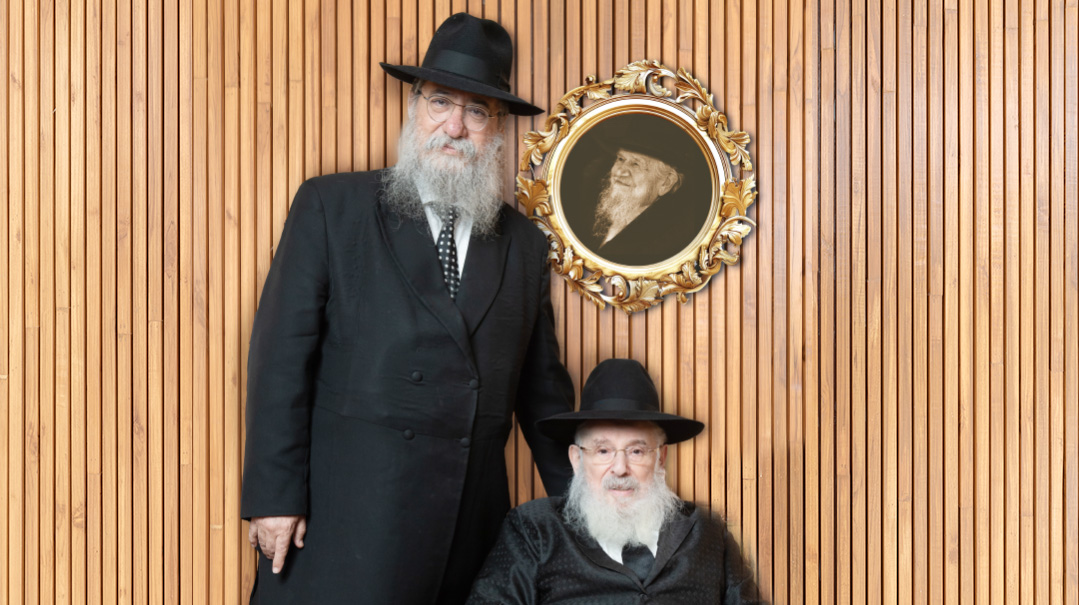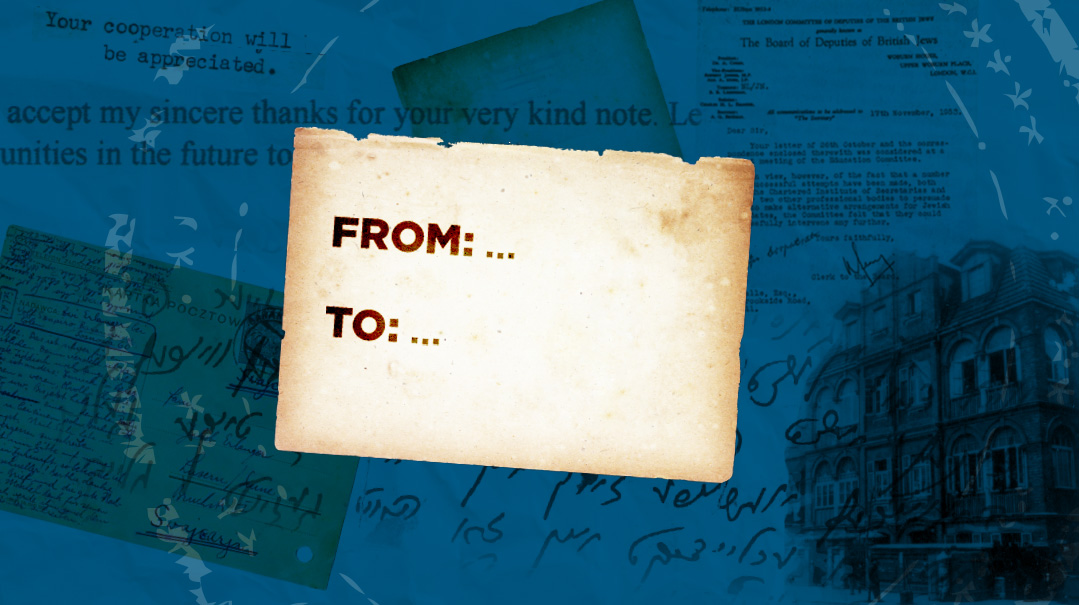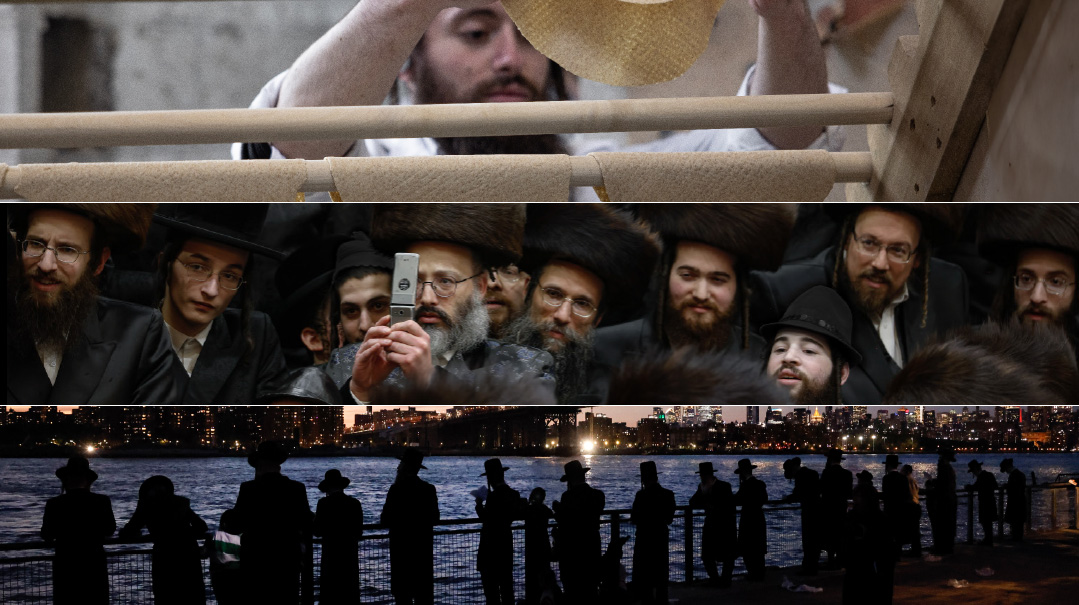Forewarned, Forearmed, Four Cups

Kashrus experts share their tips for smooth shopping to keep nerves at bay and mishaps to a minimum
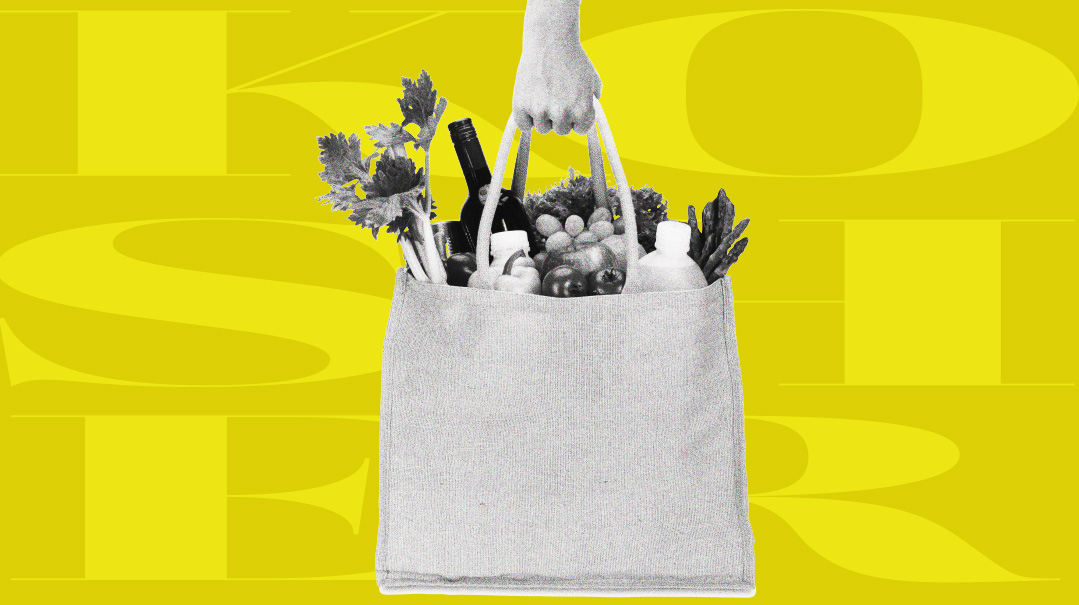
IS there any time of year that induces more nerves — and allows less room for error — than the week leading up to the majestic holiday of Pesach? After the harried frenzy of cleaning, at long last, there is the grocery shopping — pushing your cart through the aisles, fighting to stay awake long enough to check the items off your list. Now, what could go wrong? Kashrus experts share their tips for smooth shopping to keep nerves at bay and mishaps to a minimum.
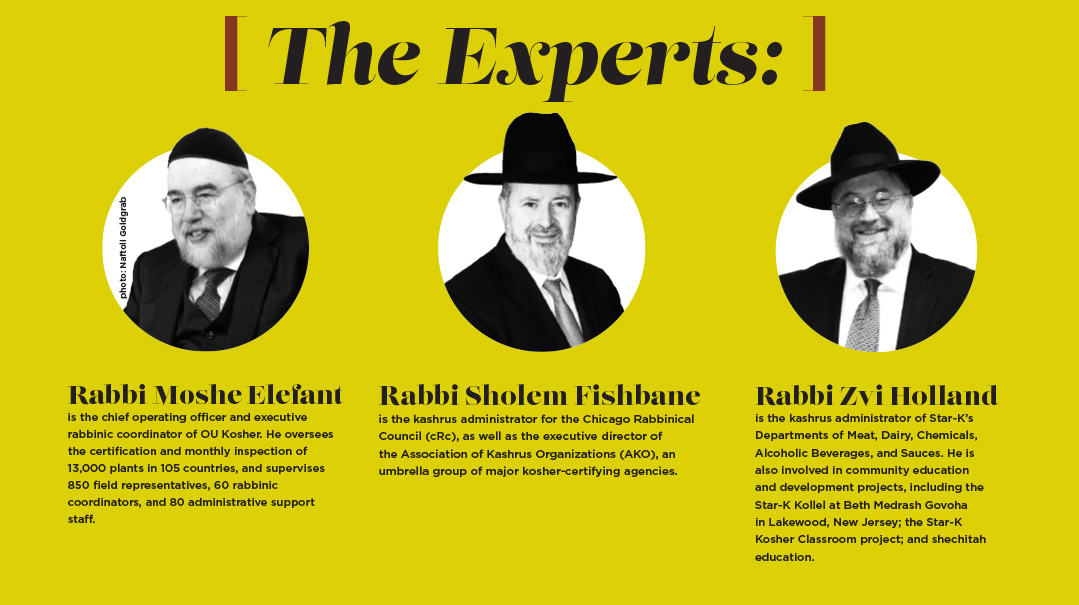
Spot the Symbol
If you’re vigilant about checking product labels the rest of the year, say our experts, the time before Pesach is when you should be extra vigilant.
Being extra vigilant means checking every part of every label, and for products you’re buying in bulk, checking the label on each and every item. Always be on guard; just because you found it in the kosher l’Pesach aisle, or even in an exclusively KLP store, that alone does not confer a Pesach hechsher.
“Every single year, without fail, we find mix-ups,” says Rabbi Fishbane. “For example, in a case of kosher l’Pesach ketchup, we find one or two bottles that are not kosher l’Pesach.”
Also, many companies don’t invest in different designs for Pesach product labels, so aside from the special P near the kosher symbol, a kosher l’Pesach item will look very similar to a year-round item. So if you’re buying four packages, three might be fine, and the fourth might have chometz.
And companies occasionally print erroneous labels.
“Every label on the product must be read,” advises Rabbi Zvi Holland. “Just last week, some shoppers found gefilte fish that said chometz on the front and kosher l’Pesach on the back. It was purely an issue of human error, but the only way to avoid this is to read every label on every product you purchase.”
Sometimes mix-ups happen at the store. A store employee mistakenly stocks a year-round item on the Pesach shelf, or a shopper picks up a bottle of ketchup in the condiments section and later decides he doesn’t want it, unknowingly putting it down in the Pesachdig section.
Rabbi Elefant remembers a woman who purchased 24 rolls of gefilte fish from the Pesach section of the grocery store. She cooked them in her Pesachdig keilim before realizing they were chometz gamur. “Don’t assume anything!” he says.
Obviously, you can’t control other people’s human error, but you can control what you place in your pantry at home.
“Put a system into place,” Rabbi Fishbane urges. “Before placing any item on a shelf in your Pesach cabinet, have someone read the label. You’ll save yourself so much agmas nefesh.”
A Matter of Time
There are certain items that are best purchased before Pesach, because they could possibly contain a residue of chometz (a safeik chometz). Those trace amounts are no longer a concern if produced before Pesach, as they are halachically mevutal (nullified).The items in question here include milk, eggs, bagged salads, and baby carrots. These foods come to the store within a few days of being processed, which means that if you buy them during Pesach, that tiny bit of chometz added to it would make it forbidden. This is because once Pesach begins, chometz is assur b’mashehu, meaning even a tiny amount cannot be nullified.
There’s a chance that eggs have been washed with a solution that contains chometzdig citric acid, explains Rabbi Fishbane.
Although milk seems like a simple and innocuous product that should not pose any chometz concerns, there are two important reasons why it preferably needs to be certified for Pesach. First, there is a possibility that it was produced on the same equipment as products that contain chometz. Milk is heated during its production, which receives a bliah, a halachic transfer of taste, from chometzdig products previously produced on the same equipment. Second, the vitamins added to the milk may contain chometz. Although these vitamins are a very minute percentage of the milk and below the level of bittul, that only helps if the bittul happened before Pesach.
Doctor’s Orders
Rabbi Elefant says he is most frequently asked about whether medications are permitted during Pesach.
“And the answer is, if someone has a chronic disease, he is permitted to take medicine on Pesach, even if it’s chometz,” he says without missing a beat.
He clarifies that “chronic” doesn’t apply to someone who is briefly in the hospital or bedridden; it means a serious disease like cancer, a heart condition, blood pressure issues, or kidney disease.
“Please, don’t wait to call a rav if you fit that criteria — just take your medication,” he says. “Too many people think they’re doing the right thing by going off their meds, and they end up very ill.”
It’s best to take your medicine in a form that can’t be chewed or swallowed, but if that isn’t an option, take the medicine you have. Additionally, you don’t need to worry if it’s kitniyos.
Rabbi Fishbane says he is often asked about antacids. The cRc holds that Tums are not kosher l’Pesach; they have a kitniyos base, and the added flavors could possibly have chometz. However, there are other agencies that okay Tums for Pesach.
“It boils down to how you view flavoring and how you view a choleh, in terms of Pesach,” Rabbi Fishbane explains. “We all agree, if you’re a regular person and just want some flavor in your water, there’s no way to find a heter for flavoring, since it might contain chometz. But if someone is a true choleh, there is a basis for permitting flavoring in medicines.”
Some rabbanim hold that heartburn qualifies a person as a choleh, and others argue that most heartburn is not serious enough to warrant this leniency. And there are alternative remedies that have no chometz concerns at all, which is why the cRc is stringent on Tums.
Raw Unadulterated Foods
Meat and Fish
The Star-K’s most common Pesach question is: What can be purchased for Pesach without a special kosher l’Pesach certification? Rabbi Holland says the answer is a simple one: all frozen chicken and meats, aside from ground beef. In fact, most hechsherim approve their meat and chicken for Pesach without adding a P to the symbol.
Rabbi Elefant elaborates that you can use raw meat and chicken without certification from your own freezer for Pesach.
“It’s best to rinse it off, but as long as it was well-wrapped, it’s fine if you didn’t,” he says.
There are meats you cannot use on Pesach without special certification: processed meats like cold cuts, which have all sorts of additional ingredients and are processed on year-round machinery, as well as chopped meat. However, if you used chopped meat that doesn’t have a Pesach hechsher, you can call your rav — depending on the circumstances, it may be okay.
“Wash frozen fish, because when fish is caught and sold whole, it’s flash-frozen to retain freshness,” Rabbi Fishbane says. “The glaze on top of frozen fish can contain corn solids, which present a kitniyos issue.”
Water
Rabbi Holland says that most bottled water is fine without a Pesach hechsher, even when it has mineral additives. However, if it contains citrates, even in only trace amounts, it should be avoided. It should also be avoided if vitamins, caffeine, and flavors are added.
Nuts
Most nuts are acceptable for Pesach without a special certification, whether in the shell or out, and even if they are steam pasteurized. They require Pesach certification if: a) they are blanched or roasted; b) they are ground into a fine powder, such as almond flour; or c) they contain BHT or BHA. Pecan pieces, even if raw, also require Pesach certification, since sometimes the companies use alcohol to separate the pecan pieces, and that can be problematic.
From the Holy Land
American consumers may assume that Pesach products from Israel meet higher certification standards. A word to the wise: Some do, and some don’t. Rabbi Zvi Holland advises you to do your homework.
“Check whether this is a hechsher you can trust,” he says. “Not every Israeli hechsher will meet your standards. There are also Israeli products that are labeled kosher l’Pesach but contain kitniyos. There are a lot of Israelis who eat kitniyos.”
Meat products from Israel require special care, says Rabbi Elefant. “A meat with a wonderful year-round hechsher might have a lesser one for Pesach, because certain hashgachos won’t certify certain ingredients for Pesach.”
This standard developed in Israel because the chareidi kashrus agencies used to only give Pesach certification to certain essential foods, Rabbi Elefant says. “There didn’t used to be kosher l’Pesach candy in Eretz Yisrael. Because it wasn’t considered to be necessary.”
Standout Products
There are a few products that raise some offbeat concerns about chometz among consumers. Rabbi Fishbane relates how he addresses some of these questions.
Lipstick
No one intends to eat lipstick — but Jews try to be stringent about chometz during Pesach, so the cRc created an online lipstick checker to assuage their concerns. It looks something like the Google search engine. “You enter your lipstick in the box, and if it comes back and says it’s accepted, then you’re good to go. If your lipstick is not in the system, you can enter the ingredients one at a time to check it that way.”
Charcoal
Another big topic is charcoal. It’s spring, people want to grill, and the question is whether the charcoal is flavored. For example, the bag says that the charcoal is apple, hickory, or mesquite — does that mean it’s flavored? “No,” Rabbi Fishbane answers patiently, “those are fine. It means that the charcoal company cut down an apple tree and just used the wood. It doesn’t need any hechsher.”
Coffee
The other Pesach necessity, aside from matzah and Schmerling’s chocolate? Coffee.
There are a few possible concerns with instant coffee during Pesach: One of the decaffeination methods uses ethyl acetate, which can be derived from chometz. Also, some companies add starch — which might be chometz or kitniyos. Lastly, the additives in flavored instant coffee and instant coffee mixes create concerns for both year-round and Passover kashrus. Bottom line: make sure it has proper certification.
Non-Food Items
Moving past the food aisles, Pesach concerns also crop up with some common non-edible household products. Those with braces or other dental appliances, for example, sometimes stop eating chometz 24 hours before Pesach. But in the event someone forgot to do this, Rabbi Fishbane says, there is no need to kasher one’s mouth —the chometz one consumed is likely not yad soledes bo.
“What’s more important is to carefully clean out the dental appliance using something like a Proxabrush, and then not eat chometz after that. There is starch on rubber bands, so if possible, you should rinse the rubber bands off.”
And the rubber gloves we use for all the cleaning and cooking can have the same problem. Some are made with oat fiber, which is chometz gamur, or corn starch, which is kitniyos. “You want starch-free,” cautions Rabbi Fishbane, “but not ‘starchless,’ which just means it has a little less starch.”
The questions come in fast and furious before Pesach, and there’s always that one question that sticks out. “For me,” laughs Rabbi Fishbane, “it was when a woman called about her parakeet, which was still eating chometz in its cage before Pesach.”
The bird flew into the newly kashered kitchen and, uh, dropped a gift into her giant pot of simmering chicken soup. Aside from having to throw out the soup, for obvious reasons, she needed to know the status of her pot.
“It was fine, that is definitely not a question of ra’ui l’achilas kelev,” says Rabbi Fishbane. “But that was a question you don’t get every day.”
And speaking of pets, because so many of their foods contain chometz, this is another area where you need to exercise caution. Goldfish food, for example, has chometz gamur.
“Chometz is assur b’hana’ah, so you can’t feed it to your pets,” says Rabbi Fishbane. “Kitniyos is fine, though.”
Hotline Stories
The Star-K’s kashrus hotline is always popular, but during the three weeks before Pesach, there are over 1,000 calls a day. The Star-K employs a team of seven or eight nashim tzidkaniyos trained to answer common questions, following scripts written by the agency’s rabbanim.
“We learn from our callers, mikol melamdai hiskalti,” says Rabbi Holland. “We have learned that a Pesach shopper who is educated and careful and detail-oriented, does research and asks questions, will resolve issues before they become a problem.”
Rabbi Holland advises callers to get clear on their particular minhagim before they dial in. What works for one person will not work for another. “People don’t realize that at Pesach time there are layers to the issue. Some eat matzah meal, some eat machine matzah, some only eat shemurah matzah. It’s important to be specific about your minhagim when asking a question.”
The OU also has a kashrus hotline staffed by two rabbanim who answer questions all year-round. That team expands leading up to Pesach, when the demand skyrockets. Rabbi Elefant says that the questions that stick out for him are the ones from those making Pesach for the very first time.
“We always receive calls from those who’ve decided they are going to keep Pesach this year, even if they don’t keep kosher year-round,” he says. “We assist them with every single step necessary to turn their nonobservant kitchen into a kosher l’Pesach one.”
Those calls are often gratifying, Rabbi Elefant says, because of the payoff that comes later. “They call us after Yom Tov to thank us. Some say that after keeping Pesach this way, they can’t send their kids to public school anymore. Some who used to be frum but left the fold say they want to come back. Those are the questions that stay with me from year to year.”
Other Common Questions
The cRc fields questions every year about whether “gluten-free” means chometz-free. Many people avoiding gluten — those with celiac, for example — cannot consume even tiny amounts of it. Since the companies labeling their products gluten-free are worried about the liability, it seems obvious that these products must contain no grain, right?
“The thing is that only the wheat’s protein causes allergic reactions,” says Rabbi Fishbane. “Other parts of the wheat, such as the starch or sugar, are not considered gluten. But they can still be chometz.”
He offers two simple examples: Benefiber and Scotch whisky, which are made from wheat dextrin and barley, respectively; they are considered gluten-free, but are nevertheless 100 percent chometz.
Rabbi Holland relates a type of question he often receives after Pesach. “A person will ask if he can pull in at a rest stop along I-95 and buy a black coffee, or is there an issue of chometz she’avar alav haPesach,” he says. “This question is kind of silly, because this issue only applies for chometz gamur that was owned by a Jew. Black coffee is not chometz gamur, even if you do have a chashash for some reason that the rest stop owner is Jewish.
“Had he asked whether he can drink black coffee at a nonkosher rest stop, there would have at least been an interesting halachic discussion.”
Postscript:
WORDS OF WISDOM
As we race to the finish line, hoping to get everything perfect for Seder night, Rabbi Zvi Holland of the Star-K counsels that there is one thing we should prioritize in our minds above all else: perspective.
“Pesach is the one Yom Tov when poskim say it’s praiseworthy to be machmir. Usually, chumras not grounded in reality are frowned upon. But for Pesach, customs like repainting your walls are commended.
“Pesach is a very serious Yom Tov, but there’s no heter to act insane. Stress is chometz too, in a sense.”
He rehashes the well-known maxim that Pesach preparations are about doing our hishtadlus to get rid of all chometz the volume of a k’zayis; anything we miss is probably smaller than that, and is covered by the bittul in any event.
“We cover, we clean, we kasher, because we don’t want our food to come into contact with chometz on Pesach,” Rabbi Holland says. “But for generations, gedolim have stressed that there’s no excuse to go overboard to the point of anxiety and stress.”
And that goes for the shopping too.
“If you can afford it, then okay, Yisrael are kedoshim who love to put their all into their Yamim Tovim,” he sums up. “But if you can’t afford it, the over-the-top shopping is just unnecessary and downgrades the ability to enjoy Yom Tov.”
(Originally featured in Mishpacha, Issue 955)
Oops! We could not locate your form.


